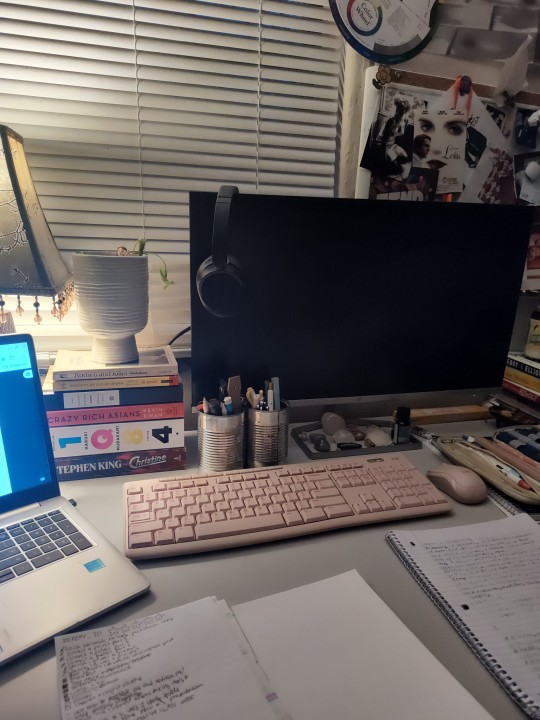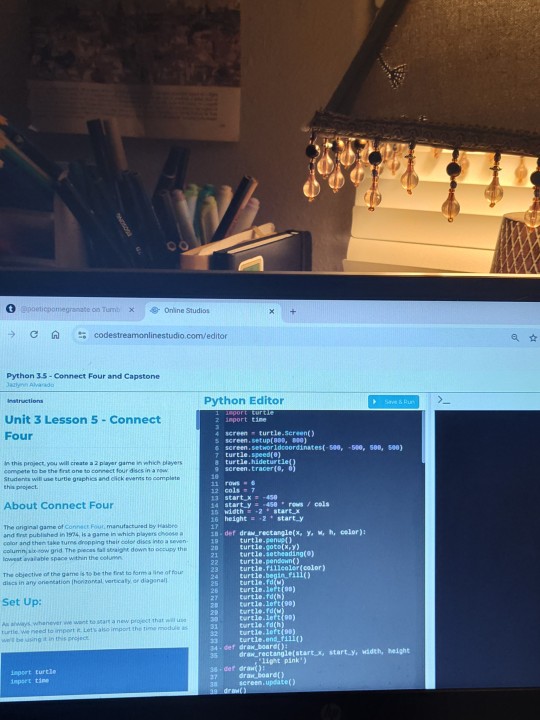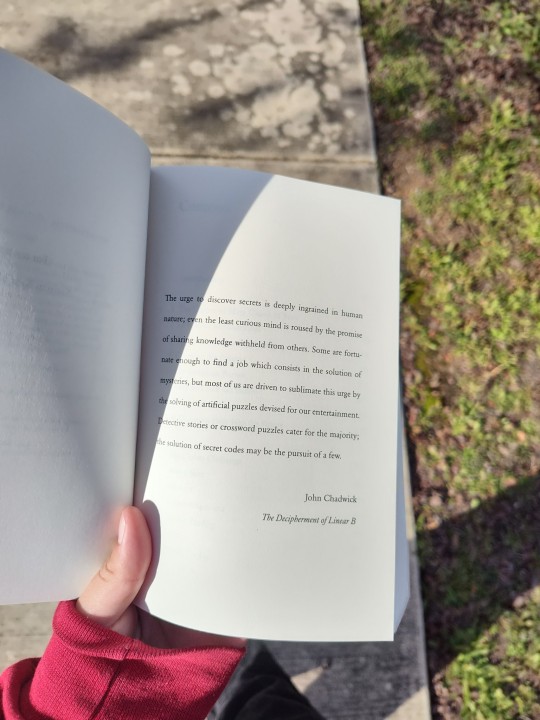/ - Jasper: 2008 Gemini / Hispanic / Queer / Any pronouns / / - My blog: Studyblr / academic inspo / motivation /
Don't wanna be here? Send us removal request.
Text
Marianne Faithfull on dying and death, 1968.
947 notes
·
View notes
Text


17 February, 1926 The Letters of Vita Sackville-West to Virginia Woolf (1924-1941)
10K notes
·
View notes
Text


Virginia Woolf, The Waves originally published: 1931
4K notes
·
View notes
Text
definitely not getting emotional over the fact that even in the late middle ages and early modern era students were passing down books to one another because they were too expensive. the same object being shared over and over again by different people all in the name of knowledge. the same way it happened to me over and over again in my school years. i feel part of a neverending chain and there is something comforting in it.
500 notes
·
View notes
Text
Jan. 21 Review 。・:*˚:✧。


Academic Accomplishments 。・:*˚:✧。
Overviewed Korean history and culture
Studied the Korean alphabet (Hangul) and its grammatical rules
Studied the Korean letters (Jamo) of the alphabet and their sounds
Practiced reading letters and sounding the letters out
Gathered resources and took notes on language learning exercises, techniques and study tips
Finished Korean Unit 1 Lesson 1 notes
Finished Korean Unit 1 Lesson 2 notes
Personal Accomplishments 。・:*˚:✧。
Went grocery shopping, got some more snacks and almond milk for matcha
Played a lot of ACNH, re-decorated my home
Visited my grandmother
Made an online shopping list for misc. necessities
Got a lot of rest !!
Overview 。・:*˚:✧。
It was a pretty good day! Initially I a had very different day planned out; I wanted to run through my Leonardo Da Vinci presentation for Principals of Health Science and practice going over the speech notes and time the duration of the presentation, but I figured its fine, and I'm sure it'll be under the time limit. I also need to learn a Pixel art platform to upload graphics and textures to the app I'm developing. But after recently developing a growing passion and interest in the Korean language, I wanted to start studying for personal goals and for leisure, and it was nice doing that again! I set some goals for language learning (which I will make a separate post about later) and I can't wait to work on them!
Rating 。・:*˚:✧。
★★★
#academic validation#academic weapon#studyblr#student life#dark academia vibes#soft academia#study aesthetic#study blog#study motivation#books and libraries#korean#south korea#learning korean#review#daily blog#online diary
10 notes
·
View notes
Text
Jan. 20 Review ˏˋ°•*⁀➷




Academic Accomplishments ˏˋ°•*⁀➷
Finished Leonardo Da Vinci presentation notes
Created Principles of Health Science Unit 1 study guide
Completed Python Connect Four and Capstone project
Completed all of Spanish I Unit 6
Completed all of Spanish I Unit 7
Completed all of Spanish I Unit 8
Completed all of Spanish I Unit 9
Completed all of Spanish I Unit 10
Personal Accomplishments/Notes ˏˋ°•*⁀➷
Visited "Tea Cup" Lounge, and tried peach boba
Went grocery shopping, got some more ramen and teas
Played a lot of ACNH, and took out a bigger home loan
Started a new series, Netflix K-drama called "XO, Kitty"
Overview ˏˋ°•*⁀➷
I did everything I wrote on my to-do list I wrote down the night before! I've taken this weekend slowly, on account of having Monday and Tuesday off from school. I notice that I'm balancing academic and personal things pretty well again! I also wanted this day to be fun; there was a lot of stress and sadness in the air because of The U.S. President's inauguration... Nevertheless, I had a lovely day indeed!
Rating °•*⁀➷
★★★★
#academic validation#academic weapon#studyblr#student life#study aesthetic#soft academia#study blog#study motivation#daily blog#online diary#personal blog#dark academia#programming#coding#python
39 notes
·
View notes
Text
A note to all the poets:
Don't bury yourself in poems, drying ink is not a coffin lid closing.
You are here, you are here.
Take a deep breathe and stop planning the funeral that isn't meant to happen yet.
203 notes
·
View notes
Text

—Andrea Gibson, "Good Light," Lord of the Butterflies
21K notes
·
View notes
Text




Even when you're tired, remember why you started.
7K notes
·
View notes
Text
“Forgive yourself for not knowing what you didn’t know before you learned it.”
— Maya Angelou
11K notes
·
View notes
Text









“to a great mind, nothing is little”- Sherlock Holmes
631 notes
·
View notes
Text
Note: When I say I'm going to be consistently posting know that unintentionally, it's a lie
3 notes
·
View notes
Text
“It's all romanticism, nonsense, rottenness, art.”
- Ivan Turgenev, Fathers and Sons (translated by George Reavy)
116 notes
·
View notes



















